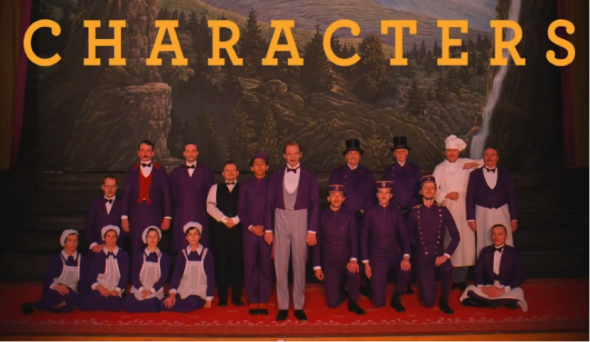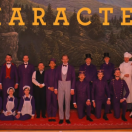
With the modus operandi of most modern Hollywood skewing more and more toward gritty tones and unrelenting realism even in their genre films, it is a breath of fresh air to have something as whimsical as Wes Anderson’s colorful new fairytale on theater screens.
Anderson has always told stories with characters of exaggerated exuberance or eccentricity, but in Grand Budapest Hotel, his direction feels far more committed to his oddball tendencies. Even when things get a bit dark — and dark they do get at times — they are done with an air of hyper-reality that is truly endearing.
Even the story structure, told in multiple story frames, is as eccentric and elaborately decorated as every set, costume, and bearded face on screen. It is revealed through the points of view of various parties across multiple 20th-century decades. In it, we have a present-day book, written by an author in the ’80s, relating a story he heard in the ’60s, about how a hotel owner he met came to run the Grand Budapest Hotel in the ’30s.
Ultimately, it is the 1930s where the bulk of the story resides. Young lobby boy Zero is taken under the wing of the commanding concierge M. Gustave, played with absolute brilliance by Ralph Fiennes. Gustave is the ultimate dandy, meticulously clothed and perfumed, stomping through the hotel with absolute authority, and feeling justified in all of his actions — even the ones that some would find unseemly. He plays the gigolo with lonely older blonde women on a regular basis, and one such relationship ignites the conflict of the film.
When Madame D., one of Gustave’s many geriatric lovers (and whose few minutes on-screen are made very memorable by Tilda Swinton), dies mysteriously, Gustave and Zero end up embroiled in a mess of intrigue and foul play. Madame D.’s son Dmitri (Adrian Brody) and his delightfully villainous henchman Jopling (Willem Defoe) frame Gustave after they find out he will be inheriting a priceless painting from her will. All of this is set in the backdrop of Europe in the 1930s without losing the fairy tale whimsy directed by Anderson with pure charm.
Every actor — and goodness are there many — fills the screen with character and presence. Even those who only show up for a few minutes are oddities. This is a joy to watch because everyone — Fiennes, Swinton, Brody, Defoe, Saoirse Ronan, Harvey Keitel, Bill Murray, Jeff Goldblum, and so many more — seems to be having such a blast bringing their wild characters to life. In fact, the characters are so lively that it is almost too much, and one finds oneself wishing for a foil to balance everything, like the sober president surrounded by insanity in Dr. Strangelove. The only one who doesn’t fit in so well is Edward Norton. While everyone melts into their inane roles, Norton just seems like himself with a wacky moustache.
What Grand Budapest Hotel ultimately does so well is recapture the magic of the cinema. Everything is bigger than life and enchanted, with characters who make the audience want to join them. It’s almost a return to classic Hollywood in its ability to give something made of unadulterated imagination. There are so many details that multiple views will likely yield more and more interesting tidbits to find. Make those multiple views on the big screen, sit back, and enjoy the show!
Grand Budapest Hotel opens in theaters in San Diego on Friday, March 14th at Landmark Hillcrest Cinemas.
